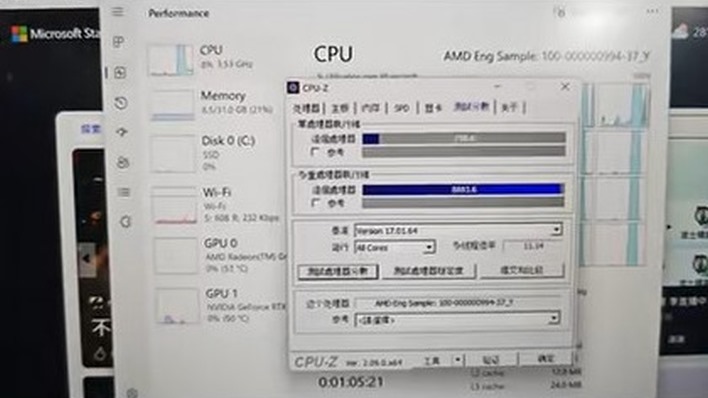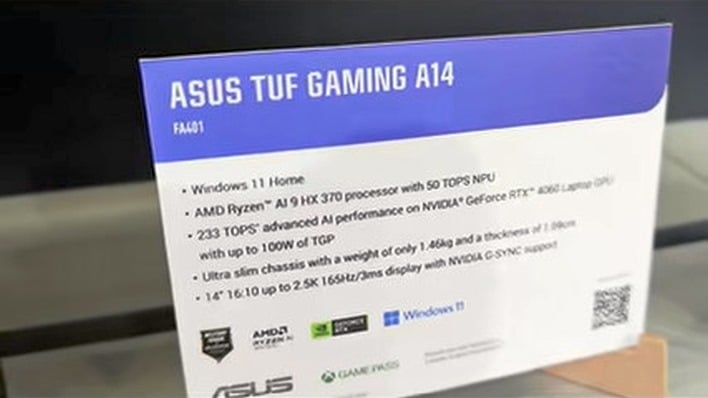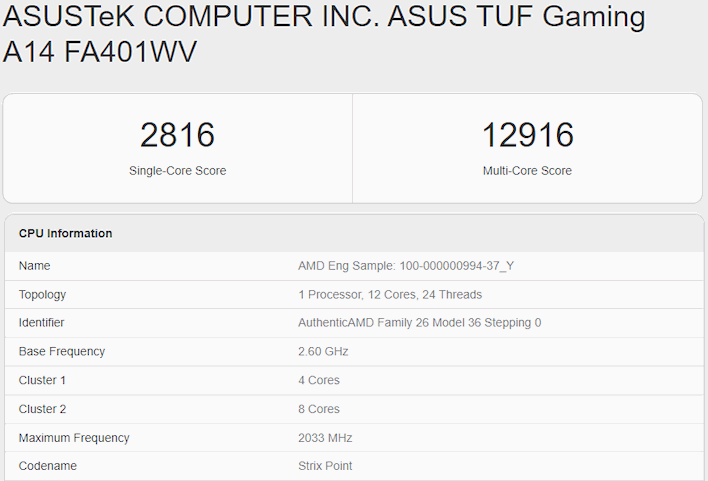AMD Strix Point Ryzen AI 370 HX Benchmark Leaks Shows Impressive Big Gains
Bilibili only offers up 360p video quality if you're not a member, and worse, the uploader was filming in horizontal mode but uploaded the video in vertical mode, somehow. Despite that, we're able to see enough to note that this result is pretty interesting. He posted both CPU-Z and Geekbench results, so let's compare them against an in-house system.

First up, the CPU-Z result. You'll just have to take us at our word that this screenshot shows a CPU-Z Version 17 benchmark, with a result of 798 points in the single-threaded test, while the multi-threaded result is 8893. Testing a system we have in-house with a Ryzen 7 8840U processor set to 30 watts, we get scores of 653 and 6770, respectively. That means that this Strix Point processor is beating us by 22% on a single thread, and fully 31% on all threads.
We'd actually expect to lose by more in the multi-threaded test given that the Strix Point chip has four more CPU cores than our eight-core Ryzen 7 8840U, but it seems like this ASUS laptop that the Computex attendee was testing on might be thermally limited. We say that because of the Geekbench result:
THe user helpfully linked their Geekbench result in the video description, so we were able to investigate it a bit. Indeed, the machine shows a Strix Point processor with four Zen 5 cores and eight Zen 5C cores. The single-threaded result is outstanding at 2816 points, outstripping even overclocked Phoenix parts. However, the multi-core score is actually not that great.
Our eight-core Zen 4 device put up Geekbench 6 scores of 2489 in ST and 11609 in MT, putting the Zen 5 chip 13% ahead of us on one thread, yet only 11% ahead on all threads. Geekbench 6 doesn't scale linearly with extra CPU cores, but this is still a lower result than we'd expect for +50% cores, so we think that there's something else going on; either a thermal or power limit, or possibly just unrefined firmware.

Notably, while the Asus placard calls this out as a Ryzen AI 9 HX 370 processor, and the specifications listed by Geekbench match up with that description, the part describes itself as "AMD Eng Sample: 100-000000994-37Y". That could mean that this system isn't running final silicon, or at least final code for the system BIOS and SMU.
Alternatively, it's also possible that this is final performance and the multi-core speed of Strix Point just isn't that impressive. We don't know what kind of clock rates the dense Zen 5C cores will be restricted to, and it's possible that low clocks are holding this machine's performance back. We won't know for sure until we get our hands on one, but rest assured we'll report back when we do.



